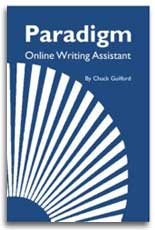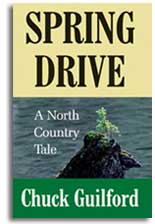Planning, Freewheeling, Adjusting
Some writers are heavy planners. They like to begin with an outline or at least a detailed understanding of where the writing will go and how it will get there. Others prefer to improvise, to follow their impulses and inspirations.
Read more ...Grammar for Writing
It's helpful to think of grammar and mechanics as matters of convention or mutual agreement among language users. Such agreement is necessary for language to work. To communicate with even the simplest words, for example, we must agree on their meaning. Conventions of grammar come partly from tradition and partly from a need to be clear and accurate. And like other conventions, rules of grammar change continually. Â
Read more ...Global and Local Perspectives
Revision means "re-seeing." Strong revisers develop a "critical zoom lens" that allows them to shift perspective from broad overview to minute detail, and to see how these levels of composition relate. To revise well, then, you must become a perceptive and imaginative reader of your own work, a reader who can anticipate another reader's response and see new ways the writing might evolve.
Read more ...Following a Metaphor
A metaphor makes a comparison, and in doing so shapes our perception. If we say, "Time is a river," we're noting a certain similarity between the two. Yet we know they aren't identical. We may mean that time is fluid, has currents and eddies, empties into some vast ocean, but not that it's composed of water. If we say, "Time is a stone," we may mean it's silent, still, indifferent, but not that it's a mineral.
Read more ...Focus and Commitment
Precisely because the immersion stage may produce a jumble of ideas and impressions, it becomes necessary to sort things out. Look for patterns in your early responses. Separate major concerns from minor ones, central issues from peripheral ones. Consider which of the many points you've raised call for more examination and discussion.
Read more ...Arguing in Context
Like other types of writing, arguments respond to specific situations: a need is not being met, a person is being treated unfairly, an important concept is misunderstood, an outdated policy needs to be reexamined. Strong arguments respond effectively to such writing contexts.
Read more ...Subject to Thesis
Often your subject will be determined by your teacher, your employer, or the writing context itself. Other times you may be free to choose your own subject. Either way, the subject itself is only a starting point, which won't make or break your paper.
Read more ...



